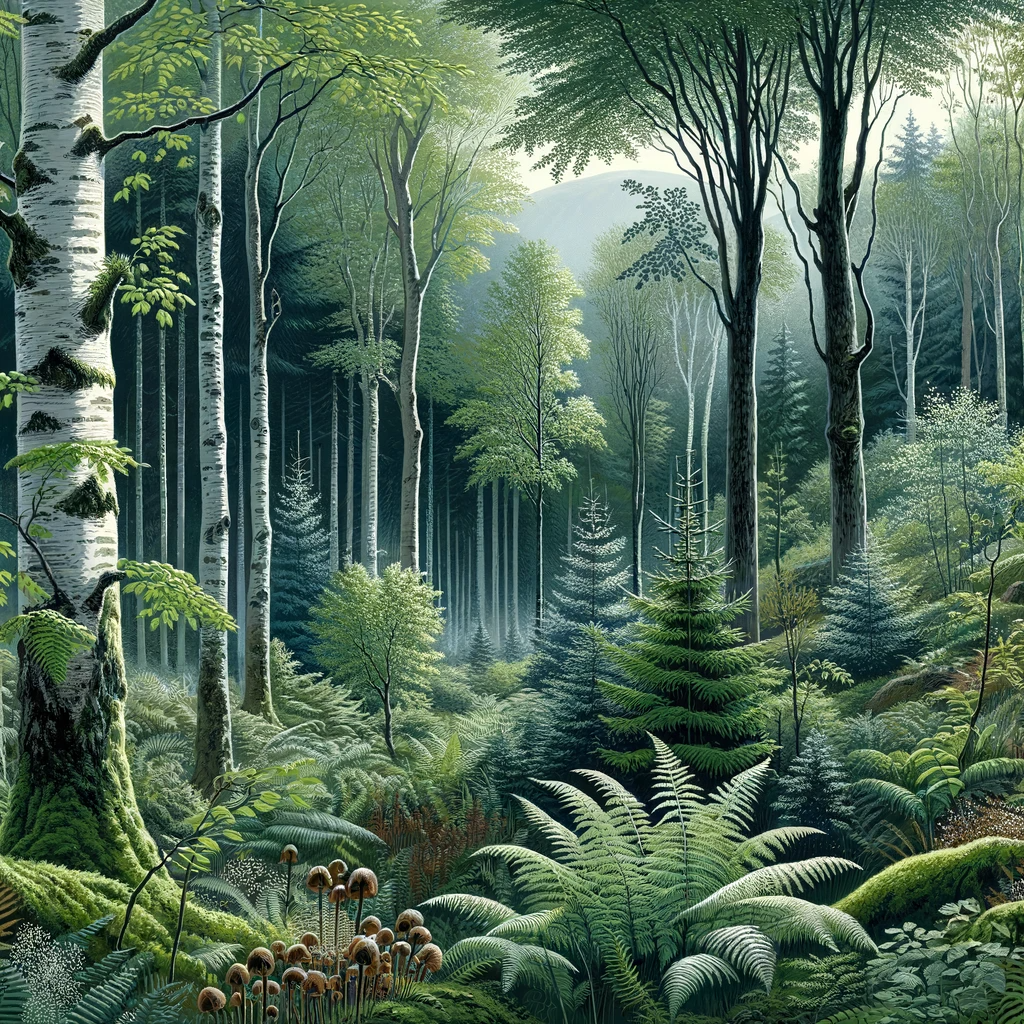The following are tree species suitable for upland birchwood settings in Scotland and which will make up some or all of those we plant for both the woodland creation scheme and the replanting at Dunans Castle Woodland:
- Silver Birch (Betula pendula) – A native species well-suited to the Scottish climate. It’s a pioneer species, often one of the first to colonize open ground and can improve soil quality for other species to follow.
- Downy Birch (Betula pubescens) – Similar to the silver birch but more tolerant of wet and peaty soils, making it suitable for upland areas with poor drainage.
- Rowan (Sorbus aucuparia) – Also known as mountain ash, it’s resilient to harsh conditions and its berries are a valuable food source for birds.
- Scots Pine (Pinus sylvestris) – Scotland’s native pine, adapted to its conditions, and provides habitat for a range of wildlife, including the red squirrel and capercaillie.
- Juniper (Juniperus communis) – A native conifer that can thrive in upland conditions. Its berries are important for wildlife and can be used in traditional Scottish recipes and gin production.
- Common Alder (Alnus glutinosa) – Thrives in wet conditions, improves soil fertility by fixing nitrogen, and its wood is resistant to water, making it historically valuable for construction.
- Holly (Ilex aquifolium) – An evergreen species providing year-round cover and berries that are a vital winter food source for birds.
- Hazel (Corylus avellana) – Produces nuts that are an important food source for wildlife and can be coppiced, providing a sustainable source of wood.
- Oak (Quercus spp.) – While slower growing, oaks support a huge range of wildlife. Sessile oak (Quercus petraea) and pedunculate oak (Quercus robur) are native and adapted to different soil types.
- Willow Species (Salix spp.) – Willows like goat willow (Salix caprea) and creeping willow (Salix repens) are suited to wetter upland areas and provide early pollen for bees.
Buy Your Carbon Credits with the Dunans Castle Woodland Offset Scheme


